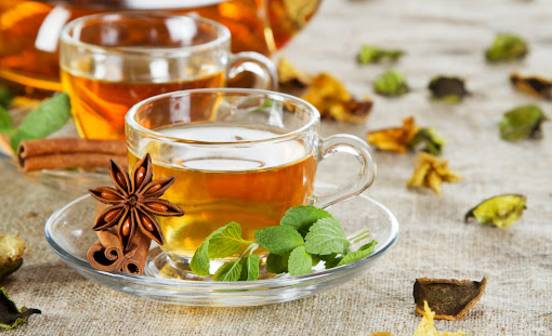Ancient Indian herbs an evergreen remedy during flu season

The pleasant monsoon season is always accompanied by an unwelcome friend – the Flu. The dropping temperature post the hot flashes of summer comes as a sigh of relief but also brings in its wake common cold, cough, sniffing noses and debilitating flu. The change in weather weakens the immune system, making us susceptible to infections, and sore throat, cough, runny nose, chest congestion, and sinus congestion are thus very common around this time
Look out for
Some of the common symptoms the flu aka monsoon season brings along are:
- Mild, wet or dry cough
- Frequent sneezing
- Blocked nose
- Runny nose
- Watery eyes
- Sore throat
- Occasional tiredness
Take help
Herbs like ginger, cinnamon, tulsi, cardamom, and cloves are found in most Indian kitchens. These are used in multiple traditional dishes but are most commonly used added to tea. When these spices and some herbs like mulethi and Brahmi are pounded and mixed with brewing tea leaves, they produce an aroma that can not just awaken all our senses and also help deliver lots of goodness to the body.
For a wholesome cup of tea, focus on the below spices specially during the infection infested monsoon season:
Mulethi also popularly known as liquorice is an age old spice which has been used as a cure for cold, cough, an immunity booster, and an antidote to strengthen the liver. The spice has an active compound which helps relieve constipation, improve digestion and deliver a healthy gut. It also helps to loosen up the phlegm which causes chest congestion, cold and cough and protect our body from foreign microbes, pollutants and allergies by boosting our immunity system.
Brahmi is a vital Ayurvedic ingredient and is also known as water hyssop or Indian pennywort. This spice has distinct qualities which can help relive stress, anxiety and also create a protective shield of vital nutrients and antioxidants in the body to fight infection and disease better.
Tulsi the most popular herb found in every Indian household is rich in vitamin C and Zinc, both immunity boosting nutrients. Plus this herb is anti-viral, anti-bacterial and anti-fungal. The presence of rosmarinic acid, an anti-microbial agent helps combat respiratory illnesses ranging from a simple cold and cough to severe bronchitis and asthma.
Ginger, one of the most prominent ingredient used in Indian cuisine is a herb loaded with vitamin B6 and is known for its medicinal values due to the multiple antioxidants it is loaded with. It is an effective immunity booster too due to the presence of compound Gingerol.
Cardamom is one of the most expensive spice in the world. It is known to help increase virus fighting immune cells in the body and is loaded with multiple antioxidants and minerals. Plus it helps strengthen the gut and relieve the digestive issues.
Traditionally in India we have always relied on desi nuskas suggested by our grandparents and most of these involve the use of the omnipresent tea. Recipes have passed on from generation to generation of chai that deliver immense health benefits along with a dose of nostalgia and warmth that each sip delivers. It’s time to make full use of these time proven nuskhas and boost our health to stay disease free this monsoon season.






